Home »
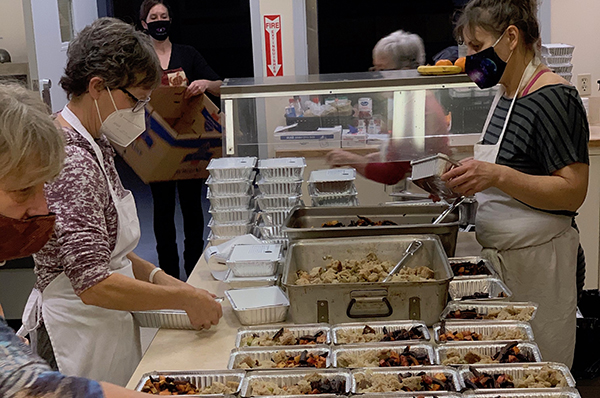
Food recovery activities increase through the Holidays
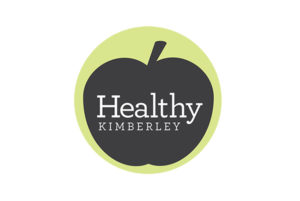 As the holiday season draws near, many in our community may be feeling the stress of rising food costs and the temporary unavailability of some food aid agencies.
As the holiday season draws near, many in our community may be feeling the stress of rising food costs and the temporary unavailability of some food aid agencies.
However, the Healthy Kimberley Food Recovery Depot remains open and often receives large amounts of food at this time of year. The food we receive from local retailers is diligently sorted by our team of trained volunteers – we currently average 175 volunteer hours per month – and the public is welcome to make use of excess perishable food after local agencies have taken what they need for their vulnerable clients.
While we usually maintain regular open to public hours on Fridays 11:30 a.m. – 12:30 p.m., we have modified hours during the winter holiday period: Tuesdays December 21 and 28 and Thursdays December 23 and 30, from 1-2 p.m. each day.
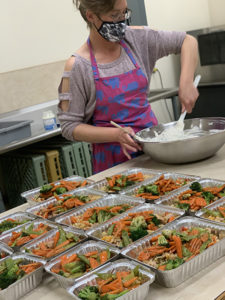 In the last three years, over 200,000 pounds have been diverted from the landfill through our recovery efforts: 170,000 lbs. were deemed edible and distributed to our community, 28,000 lbs. went to farms for compost and animals, and only 1,200 lbs. remained as garbage.
In the last three years, over 200,000 pounds have been diverted from the landfill through our recovery efforts: 170,000 lbs. were deemed edible and distributed to our community, 28,000 lbs. went to farms for compost and animals, and only 1,200 lbs. remained as garbage.
The food we recover is considered “fit to eat but not fit for sale.” What does that mean? Often it is food that is close to the best before date.
Sometimes, produce that is imperfect or better for cooking than for eating fresh. But often it is perfectly fresh food that just needs to be taken off the shelves due to re-stocking needs. At the Food Recovery Depot, we frequently share tips and tricks to help prolong the life of various food items, as well as recipes to inspire.
The goal of our work at the Food Recovery Depot is to increase the impact of our partner agencies: it takes a community!
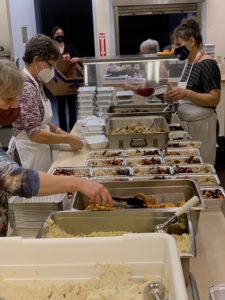 Given our unique perspective at the hub of our local wheel of food services, we adapt our services as we identify needs. Our frozen meal program is a great example and has been going strong since April 2020. Between contracted professional cooks and group volunteer cooking sessions, over 17,000 servings have been produced. The style, size and quantity of production is adapted to meet current needs, as identified by our partner agencies, which distribute the prepared meals.
Given our unique perspective at the hub of our local wheel of food services, we adapt our services as we identify needs. Our frozen meal program is a great example and has been going strong since April 2020. Between contracted professional cooks and group volunteer cooking sessions, over 17,000 servings have been produced. The style, size and quantity of production is adapted to meet current needs, as identified by our partner agencies, which distribute the prepared meals.
For example: 10-15 family-size meals augment the Blarchmont Early Learning Centre dinner program each week so they are able to meet the number of requests they receive.
Handheld snacks have been in higher demand for local school meal programs with COVID-19 restrictions, so we produce and individually package/label (in small kraft bags, not plastic!) an average of 100 whole food-based muffins a week.
Seniors Helping Seniors has created a new frozen meal delivery service for clients to facilitate access to meals.
As the activities of the Food Recovery Depot increase, costs do as well.
 This time of year, many people think about giving back to our community. If you are inspired to support our work, online donations are accepted at www.canadahelps.org, search for Healthy Kimberley Society.
This time of year, many people think about giving back to our community. If you are inspired to support our work, online donations are accepted at www.canadahelps.org, search for Healthy Kimberley Society.
Cheques made out to Kimberley Wellness Foundation can be delivered to our facility at 260 – 4th Ave, the basement of the Kimberley Health Centre. Tours of the facility are welcome by appointment!
Donations can also be added this month to your purchase from Little Big Studio & Gallery, downtown Kimberley.
To learn more: https://www.healthykimberley.com/, FB: Healthy Kimberley: Food Recovery Depot group, IG: foodrecoverydepot. Email or call our coordinator at [email protected], (250)427-7981.
Photos courtesy Healthy Kimberley Food Recovery Depot
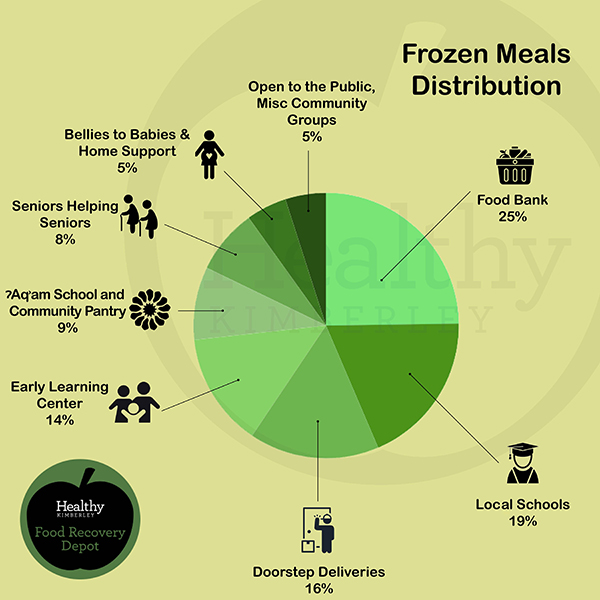 Healthy Kimberley Food Recovery Depot
Healthy Kimberley Food Recovery Depot







